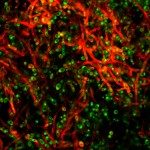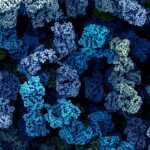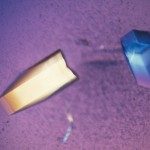Link to Pubmed [PMID] – 26666917
Antimicrob. Agents Chemother. 2015;60(3):1438-49
In a search for new antifungal compounds, we screened a library of 4,454 chemicals for toxicity against the human fungal pathogen Aspergillus fumigatus. We identified sr7575, a molecule that inhibits growth of the evolutionary distant fungi A. fumigatus, Cryptococcus neoformans, Candida albicans, and Saccharomyces cerevisiae but lacks acute toxicity for mammalian cells. To gain insight into the mode of inhibition, sr7575 was screened against 4,885 S. cerevisiae mutants from the systematic collection of haploid deletion strains and 977 barcoded haploid DAmP (decreased abundance by mRNA perturbation) strains in which the function of essential genes was perturbed by the introduction of a drug resistance cassette downstream of the coding sequence region. Comparisons with previously published chemogenomic screens revealed that the set of mutants conferring sensitivity to sr7575 was strikingly narrow, affecting components of the endoplasmic reticulum-associated protein degradation (ERAD) stress response and the ER membrane protein complex (EMC). ERAD-deficient mutants were hypersensitive to sr7575 in both S. cerevisiae and A. fumigatus, indicating a conserved mechanism of growth inhibition between yeast and filamentous fungi. Although the unfolded protein response (UPR) is linked to ERAD regulation, sr7575 did not trigger the UPR in A. fumigatus and UPR mutants showed no enhanced sensitivity to the compound. The data from this chemogenomic analysis demonstrate that sr7575 exerts its antifungal activity by disrupting ER protein quality control in a manner that requires ERAD intervention but bypasses the need for the canonical UPR. ER protein quality control is thus a specific vulnerability of fungal organisms that might be exploited for antifungal drug development.



